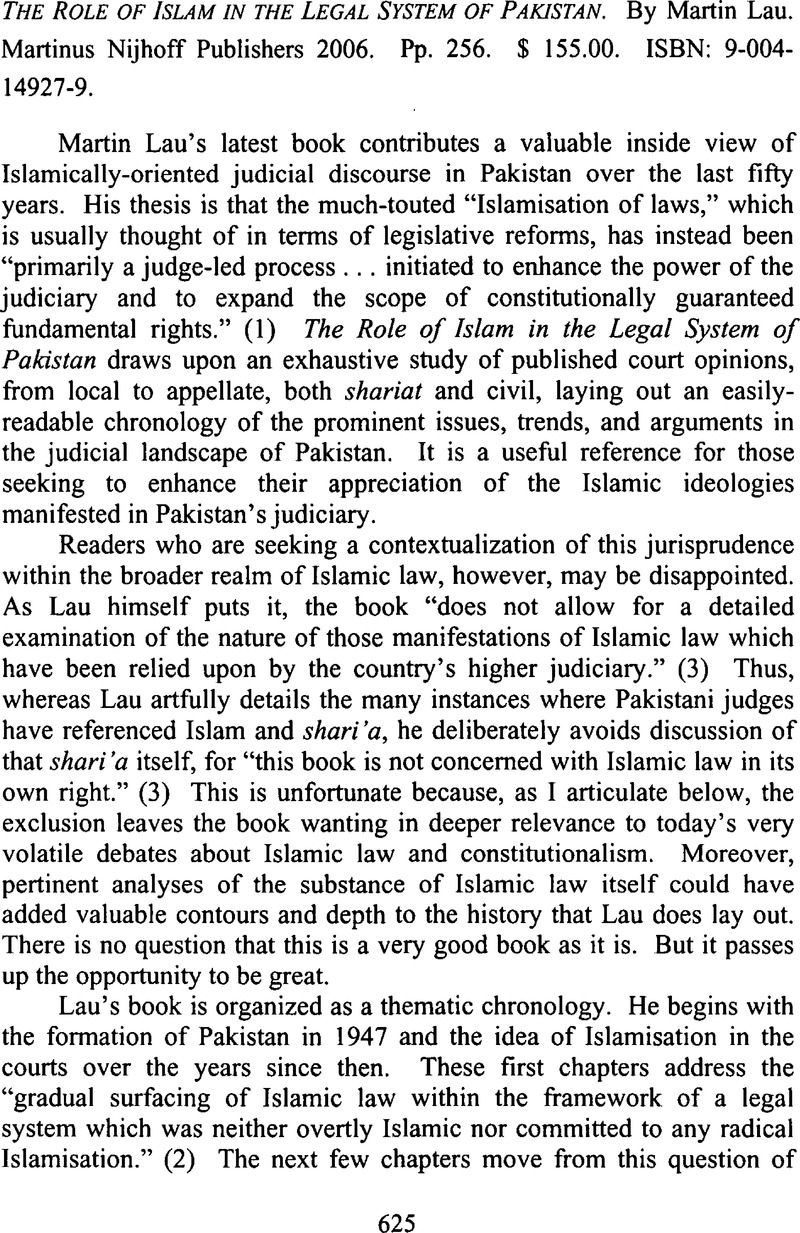No CrossRef data available.
Published online by Cambridge University Press: 24 April 2015

1. There are a few instances where Lau does make comments indicating his own evaluation about substantive Islamic law in itself, but he nevertheless gives the reader no further information with which to assess his conclusions. For example, in a discussion of “fundamental rights” jurisprudence, lauding it as “Islam's main contribution to the legal system of Pakistan,” Lau comments that “the advancement of human rights on the basis of liberal interpretations of Islam sits uneasily with those cases that relied on more orthodox interpretations of Islam.” (210) But how do we know that there is a difference between “liberal interpretations” and those that are “orthodox”? We are to take Lau at his word, because he gives the reader no further information with which we can directly engage question ourselves. Yet the very existence of Lau's comment here seems to prove that a complete analysis of the subject cannot be accomplished without engaging the substance of Islamic law itself. Unfortunately, the occasions in which he does so are rare, and only of this cursory sort. (Another example appears on page 102, in his discussion of the accountability of public officials as a feature of Islamic law.).